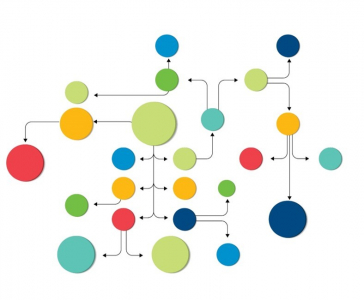Interoperability: The Key to Increased Efficiency for Emerging Biopharmaceutical Companies
By Bob Beliveau
Businesses create value by transforming raw materials into finished goods and selling them for a profit. There is an internal “supply-chain” that unfolds horizontally across most businesses with handoffs occurring between functions. For instance, one can envision a series of handoffs from purchasing, to receiving, to engineering, to manufacturing, to packaging, and finally to shipping.
Over dozens of informatics projects and several decades, we have found that these “functional handoffs” are a source of considerable friction within many businesses. Moreover, friction is often amplified due to specialized software that caters to a specific function’s needs without consideration for the internal supply-chain. The business is then left to devise the interface themselves, often resulting in paper forms or other point solutions that require much human intervention.
Considerable improvements can therefore be made by automating the functional handoffs. Recently, we have had good success automating the handoff between purchasing and receiving. Handoffs can be facilitated using the Application Programming Interfaces (API) of modern accounting systems that securely allow other business applications to access their data. For example, an electronic list of unreceived purchase orders can be surfaced so that the receiving team can efficiently inspect, label, and store incoming items without the need for paper logs or forms. Furthermore, once goods are received, accounting can be notified that the vendor should be paid.
Similar interfaces can be implemented at each of the functional handoffs. The key things to consider are 1) providing accurate and complete specifications, and 2) providing visibility to the downstream party. Good specifications allow the work to proceed without having to stop for clarification or other delays. Visibility gives the downstream party assurance that their needed inputs will arrive and when to expect them.
The benefit of interoperable software within internal supply chains is clear. By allowing the seamless transfer of data between different software systems, interoperability can reduce errors, improve efficiency, and enable better collaboration. As more software products provide APIs and other interface techniques, now is the time to automate those functional handoffs and digitize your company’s internal supply chain.

